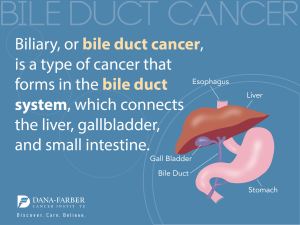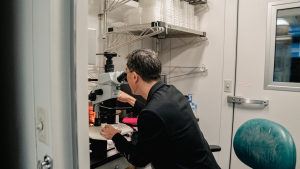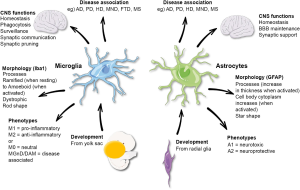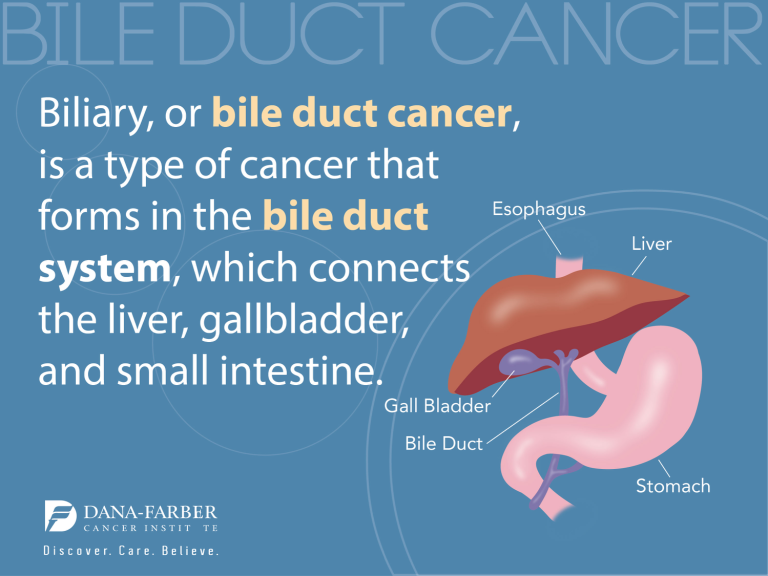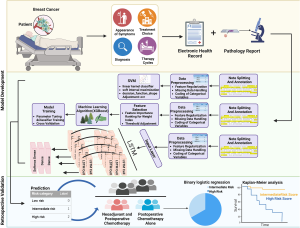The ethical implications of CRISPR have become a hot topic in recent discussions surrounding gene editing technologies. As scientists explore the potential to cure diseases like sickle cell anemia, many grapple with the moral questions that arise, such as the impact on health equity and the potential for misuse. CRISPR technology enables precise modifications to the genome, prompting concerns that range from who decides which traits are desirable to how much access the public will have to these groundbreaking therapies. As we advance in gene editing capabilities, the intersection between medical ethics and societal norms remains a critical area of debate. Ultimately, society must confront the balance between the promise of CRISPR cures and the ethical dilemmas they present.
The discourse on gene modification techniques, particularly the transformative CRISPR system, raises significant ethical considerations that merit exploration. With the ability to edit genetic material at an unprecedented level, discussions around gene editing ethics delve into the challenges of ensuring fair access to medical advancements like the sickle cell cure. Important concerns arise regarding who gets to make decisions about genetic traits and the implications for individuals and society at large. As medical practitioners and bioethicists investigate the ramifications of CRISPR technology, the conversation naturally extends to health equity and the responsibilities that come with such powerful tools. This multifaceted landscape of medical ethics invites a careful examination of not only what we can do, but also what we should do with these innovative scientific capabilities.
The Promise of CRISPR Technology in Medical Treatment
CRISPR technology offers groundbreaking potential for the treatment of various genetic disorders. With its ability to edit genes in a precise and targeted manner, CRISPR is paving the way for cures that were once thought impossible. For example, scientists can now utilize CRISPR to manipulate somatic cells in individuals suffering from sickle cell anemia, providing a chance for a healthier life by eliminating the genetic defects causing the disease. The implications of such advancements are enormous, spanning not only physical health benefits but also significant societal impacts.
Despite its promise, the implementation of CRISPR technology raises crucial questions in the realm of medical ethics. The power to alter human genetics presents substantial ethical dilemmas, such as the potential for designer babies and the limits of acceptable modifications. As highlighted in discussions surrounding the treatment of conditions like Down syndrome, the societal implications of deciding who should receive such genetic interventions are profound. The medical community must carefully navigate these waters, ensuring that the use of CRISPR aligns with ethical standards.
Ethical Implications of Gene Editing
The ethical implications of CRISPR technology are varied and complex. As discussed in the presentation by Neal Baer, the question of whether we should edit genes that lead to conditions compatible with life poses an ethical conundrum. Should individuals or parents have the right to make decisions about the genetic traits of their children? This moral debate provokes deep reflection on what it means to be human and the essence of individuality. The ability to choose traits raises concerns about eugenics and the value placed on human diversity.
Moreover, the ethical discourse surrounding gene editing does not solely focus on the individual; it extends to societal health equity. The high costs associated with gene therapies, such as the sickle cell cure estimated at $2.2 million, exacerbate existing inequalities in healthcare access. As Baer notes, the question of who finances these treatments is vital, posing serious considerations about justice and fairness in healthcare. Without addressing these disparities, advancements in genetic technology could widen the gap between the haves and the have-nots in society.
Health Equity and Access to Gene Therapy
The integration of CRISPR technology into mainstream medicine raises significant concerns about health equity. Since treatments like those for sickle cell anemia can be prohibitively expensive, access becomes a key issue. As noted in the dialogue between Baer and Brendel, innovations in medicine often disproportionately benefit those who can afford them, thereby neglecting marginalized populations. This reality calls for a reassessment of how medical advancements are distributed and who gets to benefit from them.
Additionally, the ethical consideration of health equity must also include the implications of gene editing on global populations. For diseases that affect millions worldwide, such as sickle cell anemia, the ethical decision-making process must include those affected in resource-scarce environments. If gene therapy is only available to wealthy nations while disregarding the needs of poorer countries, then medical advancements risk perpetuating global health disparities rather than alleviating them.
Medical Ethics and Gene Editing Regulations
Regulation plays a critical role in ensuring that gene editing technologies like CRISPR are used ethically and responsibly. As Baer pointedly asked during his talk, the question of oversight is paramount: Who monitors gene editing practices, especially in countries with less stringent regulations? While germline editing is currently illegal in many jurisdictions, the potential for unregulated experimentation poses serious risks of unethical practices. The medical community must engage in dialogue to establish clear guidelines that govern gene editing.
Moreover, the establishment of robust regulatory frameworks becomes increasingly important as the technology evolves. As CRISPR can be applied in ways that are not fully understood, the medical field must guard against unintended consequences. Responsible practices should encompass rigorous testing and evaluation to assess both safety and ethical compliance before applying gene editing in clinical settings.
The Dilemma of Parental Choice in Genetic Modification
The question of parental choice in genetic modification often intersects with deeper ethical concerns. As medical professionals and ethicists grapple with technologies such as CRISPR, the implications of allowing parents to select genetic traits for their children prompts critical discussions. This choice raises philosophical questions about autonomy, parental rights, and the nature of human variation. Should parents dictate the attributes of their offspring, or is this a step too far in our pursuit of perfection?
Personal stories, such as that shared by Ethan Weiss regarding his daughter, illuminate the complexity of these decisions. The profound shift in perception after a child’s birth can alter views on genetic modification and what it means to navigate the world with differences. This personal narrative emphasizes that while parents may initially seek to eliminate perceived imperfections, such choices must consider the potential for valuing diversity and the rich tapestry of human experience.
Public Perception and Controversies Surrounding CRISPR
Public perception of CRISPR technology can significantly influence its acceptance and implementation in clinical settings. As scientific advancements race ahead, discussions populated by fear and misunderstanding can overshadow the potential benefits. Engaging the public in informed discussions about CRISPR’s capabilities and ethical implications is essential for fostering a responsible approach to its use. Transparency in communicating both promises and perils can help demystify the technology and build trust in its applications.
Conversely, controversies surrounding gene editing can ignite public debate, sometimes leading to resistance against its adoption in medical practices. Events like Baer’s talk aim to create a platform for dialogue, helping to address concerns such as bioethics, access, and the moral fabric surrounding genetic manipulation. By encouraging thoughtful conversations, the hope is to bridge gaps in understanding while ensuring that the powerful tools of CRISPR are harnessed responsibly.
Future Perspectives on Gene Editing and Health
The future of gene editing, particularly through technologies like CRISPR, holds transformative potential for healthcare. As research progresses, we may witness a paradigm shift in how we approach genetic disorders and treatment methodologies. With ongoing advancements, the prospect of curing hereditary diseases could extend to conditions previously deemed incurable, significantly changing the landscape of healthcare.
However, this optimistic future is contingent on addressing the ethical, societal, and regulatory challenges that accompany gene editing. The scientific community must strive for a balanced framework that prioritizes safety, efficacy, and equity. Engaging various stakeholders—including ethicists, policymakers, and the public—in these conversations will be crucial for ensuring that advancements in gene editing align with the broader goals of health equity and social justice.
Balancing Innovation and Ethical Considerations in Medicine
As CRISPR technology continues to evolve, it becomes increasingly important to strike a balance between innovation and ethical responsibility. The rapid pace of scientific discovery can sometimes outstrip the capacity to evaluate its social implications thoroughly. Innovations like gene editing must be approached with caution, ensuring that ethical considerations are an integral part of the development process.
Furthermore, medical professionals, scientists, and ethicists must work collaboratively to ensure that any advancements uphold the values of fairness, justice, and respect for human dignity. By fostering interdisciplinary dialogue, we can navigate the complexities of gene editing and ensure that its application benefits all of society while minimizing harm and addressing potential inequalities.
Education and Awareness on Gene Editing Technologies
Education and awareness are critical components in navigating the complexities of gene editing technologies like CRISPR. It is essential to provide accessible information to the public, medical professionals, and policymakers about the science behind gene editing, its potential benefits, and its ethical implications. Building a well-informed society can foster responsible discussions about genetic modification and empower individuals to engage in decision-making processes.
Moreover, educational institutions must integrate subjects like medical ethics, human genetics, and health equity into their curricula to prepare future generations of healthcare professionals. By cultivating an understanding of the ethical landscape surrounding gene editing, we can equip the next wave of scientists and practitioners with the knowledge required to responsibly advance gene editing technologies while remaining mindful of their societal impact.
Frequently Asked Questions
What are the ethical implications of CRISPR technology in gene editing?
The ethical implications of CRISPR technology in gene editing are profound and multifaceted. They include concerns about ‘playing God,’ especially regarding germline editing, which could alter human evolution. Additionally, questions arise about consent, particularly regarding decisions made for unborn children, and the potential for genetic inequality in access to these technologies, affecting health equity.
How does gene editing ethics relate to curing diseases like sickle cell?
Gene editing ethics closely relate to curing diseases like sickle cell by raising questions about the morality of altering human genes for disease correction versus natural variation. While CRISPR offers hope for effective treatments, it also poses dilemmas about who decides which conditions warrant genetic intervention and the long-term effects of such modifications on humanity.
What role does health equity play in the discussion of CRISPR and sickle cell cures?
Health equity plays a crucial role in discussions about CRISPR and sickle cell cures, as the high cost of treatments could exacerbate existing healthcare disparities. If only wealthy individuals can afford gene editing therapies, this could lead to greater inequality in health outcomes and access to revolutionary medical technologies, raising significant ethical concerns.
What challenges does CRISPR pose for medical ethics?
CRISPR poses several challenges for medical ethics, including the potential for unintended genetic consequences, the difficulty in establishing regulations, and the ethical dilemmas surrounding enhancement versus treatment. There’s also the critical concern of who has the authority to make decisions about genetic modifications, especially in germline editing which affects future generations.
Why is oversight important in the context of CRISPR gene editing?
Oversight is crucial in the context of CRISPR gene editing to prevent unethical practices and misuse of the technology, particularly in countries with less stringent regulations. Without proper oversight, there’s a risk of creating genetically modified individuals for non-therapeutic reasons, leading to ethical abuses and societal inequalities.
What are the risks of unintended consequences with CRISPR technology?
The risks of unintended consequences with CRISPR technology include potential off-target effects where unintended genes are altered, leading to unforeseen health issues. Additionally, since genes interact broadly within biological systems, modifying one gene could disrupt essential processes, resulting in detrimental effects not immediately foreseeable.
How can CRISPR technology lead to a conversation about human variation and health justice?
CRISPR technology can spark discussions about human variation and health justice by challenging the notion of perfection in genetic traits. It brings to light the ethical implications of altering traits seen as deviations or disabilities, prompting questions about societal acceptance of diversity and the moral responsibilities that come with advanced genetic manipulation.
What are the implications of CRISPR on future generations regarding genetic editing?
The implications of CRISPR on future generations include the potential for creating ‘designer babies’ with selected traits, which raises ethical concerns about eugenics, consent, and the right to an unaltered genetic heritage. Such choices could significantly impact societal norms and the value placed on human diversity.
How does the cost of gene editing treatments influence ethical considerations?
The cost of gene editing treatments heavily influences ethical considerations, as high prices may limit access to life-saving therapies for the affluent while leaving marginalized populations behind. This inequality raises questions about health justice and the ethical responsibility of ensuring that all individuals have access to advancements in CRISPR technology.
What questions arise regarding parental decision-making in CRISPR gene editing?
Questions about parental decision-making in CRISPR gene editing center on the ethics of allowing parents to modify their children’s genetic traits before birth. This includes discussions on autonomy, the balance between parental rights, and the psychological impacts on children who may not align with their parents’ expectations for genetic ‘perfection’.
| Key Points | Details |
|---|---|
| Overview of CRISPR | CRISPR is a gene-editing technology that allows scientists to modify genes in living organisms. |
| Ethical Considerations | The use of CRISPR raises moral questions about the right to alter human traits and the implications for society. |
| Cost of Treatment | The cure for sickle cell anemia using CRISPR can cost around $2.2 million, raising questions about accessibility and equity. |
| Health Justice | Innovations in gene editing may widen the gap between those who can afford treatments and those who cannot. |
| Parental Decision-Making | Debates arise over whether parents should have the authority to modify traits in their children. |
| Potential for Misuse | Concerns about oversight and the potential for unethical applications of gene editing technologies. |
| Unintended Consequences | Gene editing could lead to unforeseen health issues due to the complexity of genetic interactions. |
Summary
CRISPR ethical implications are a significant topic in today’s discussions about genetic editing. As we explore the potential benefits of curing genetic diseases, we are confronted with profound ethical questions regarding our right to modify human characteristics. While advancements in gene editing could bring about revolutionary medical treatments, such as the cure for sickle cell anemia, these innovations also risk exacerbating social inequalities and raise serious considerations about autonomy in parental decision-making. Thus, as society navigates the implications of CRISPR technology, it is crucial to foster a nuanced dialogue that emphasizes ethical responsibility alongside scientific progress.

